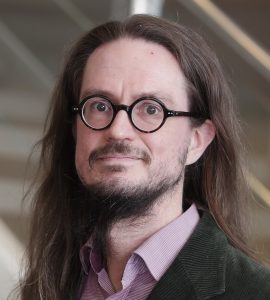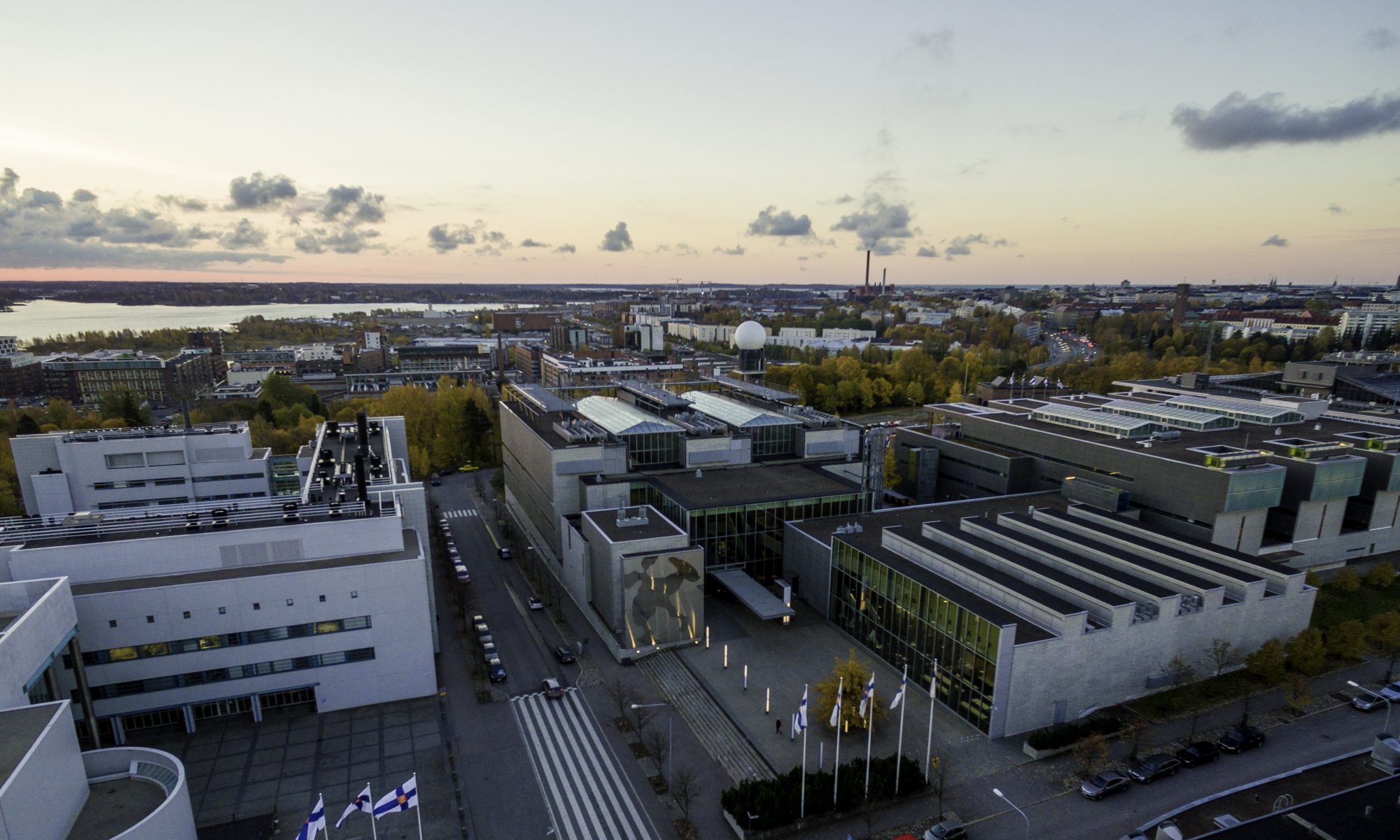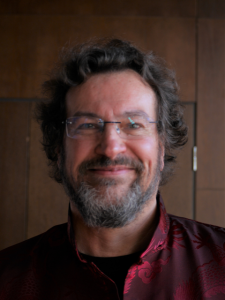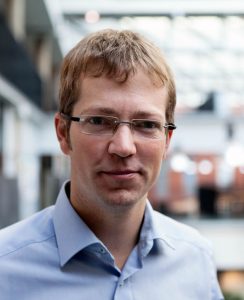Our next colloquium in the spring series is by Tuomas Lappi from the University of Jyväskylä on April 14th.
Tuomas Lappi obtained his PhD from the University of Helsink i in 2005. After postdocs at Brookhaven National Laboratory and CEA/Saclay he moved to the University of Jyväskylä in 2009. He obtained an ERC Consolidator grant in 2015. Since 2022 he is the director of the Academy of Finland Centre of Excellence in Quark Matter. His research revolves around the interactions of quarks and gluons in high energy collisions, such as relativistic heavy ion collisions aiming to produce deconfined quark matter in the laboratory.
i in 2005. After postdocs at Brookhaven National Laboratory and CEA/Saclay he moved to the University of Jyväskylä in 2009. He obtained an ERC Consolidator grant in 2015. Since 2022 he is the director of the Academy of Finland Centre of Excellence in Quark Matter. His research revolves around the interactions of quarks and gluons in high energy collisions, such as relativistic heavy ion collisions aiming to produce deconfined quark matter in the laboratory.
The event was held on Friday 14.4.23 at 14:15, in Chemicum A129.
Link to video: https://unitube.it.helsinki.fi/unitube/embed.html?id=3352d6c6-f559-4413-97af-04b610c04939
The title of his talk is: The Electron-Ion Collider EIC – the most powerful microscope on Earth
His abstract reads:
This talk will discuss the physics program of the Electron-Ion Collider EIC. The EIC will be built at Brookhaven, combining the existing proton and ion beams of RHIC with a new electron accelerator, and should start taking data in the early 2030’s. The EIC will be the first collider energy deep inelastic scattering experiment with polarized protons, and the first to collide heavy ions. It will also have a luminosity that is orders of magnitude higher than previous comparable experiments at DESY. These features allow the EIC to access new aspects of gluonic degrees of freedom in ordinary matter, in particular gluons carrying a small fraction of the nucleus momentum. These gluons are also the relevant degrees of freedom for understanding the creation of the matter that subsequently turns into deconfined quark matter in a relativistic heavy ion collision. Thus the EIC physics program has many connections to the research on properties of the quark gluon plasma.

 Our first Kumpula Physics Colloquium for the year 2023 will take place on Friday, March 24. We will have a presentation on the regulation of cell fate and integrity to be given by Sara Wickström who is the director of the Max Planck Institute for Molecular Biomedicine in Münster.
Our first Kumpula Physics Colloquium for the year 2023 will take place on Friday, March 24. We will have a presentation on the regulation of cell fate and integrity to be given by Sara Wickström who is the director of the Max Planck Institute for Molecular Biomedicine in Münster. Our next Physics Colloquium will take place on Friday, November 11th. We will have a presentation given by Visa Heinonen and Mika Pantzar, professors from
Our next Physics Colloquium will take place on Friday, November 11th. We will have a presentation given by Visa Heinonen and Mika Pantzar, professors from  They will open the academic history of economics through the writings of two classics, John Maynard Keynes and John von Neumann. In the 1930s, Keynes questioned the policy doctrines underlying the equilibrium theory of
They will open the academic history of economics through the writings of two classics, John Maynard Keynes and John von Neumann. In the 1930s, Keynes questioned the policy doctrines underlying the equilibrium theory of  Our first Physics Colloquium for the new academic year will take place on Friday, October 7th. We will have a presentation to be given by Aleksi Vuorinen, who recently became a Full Professor in our department.
Our first Physics Colloquium for the new academic year will take place on Friday, October 7th. We will have a presentation to be given by Aleksi Vuorinen, who recently became a Full Professor in our department.